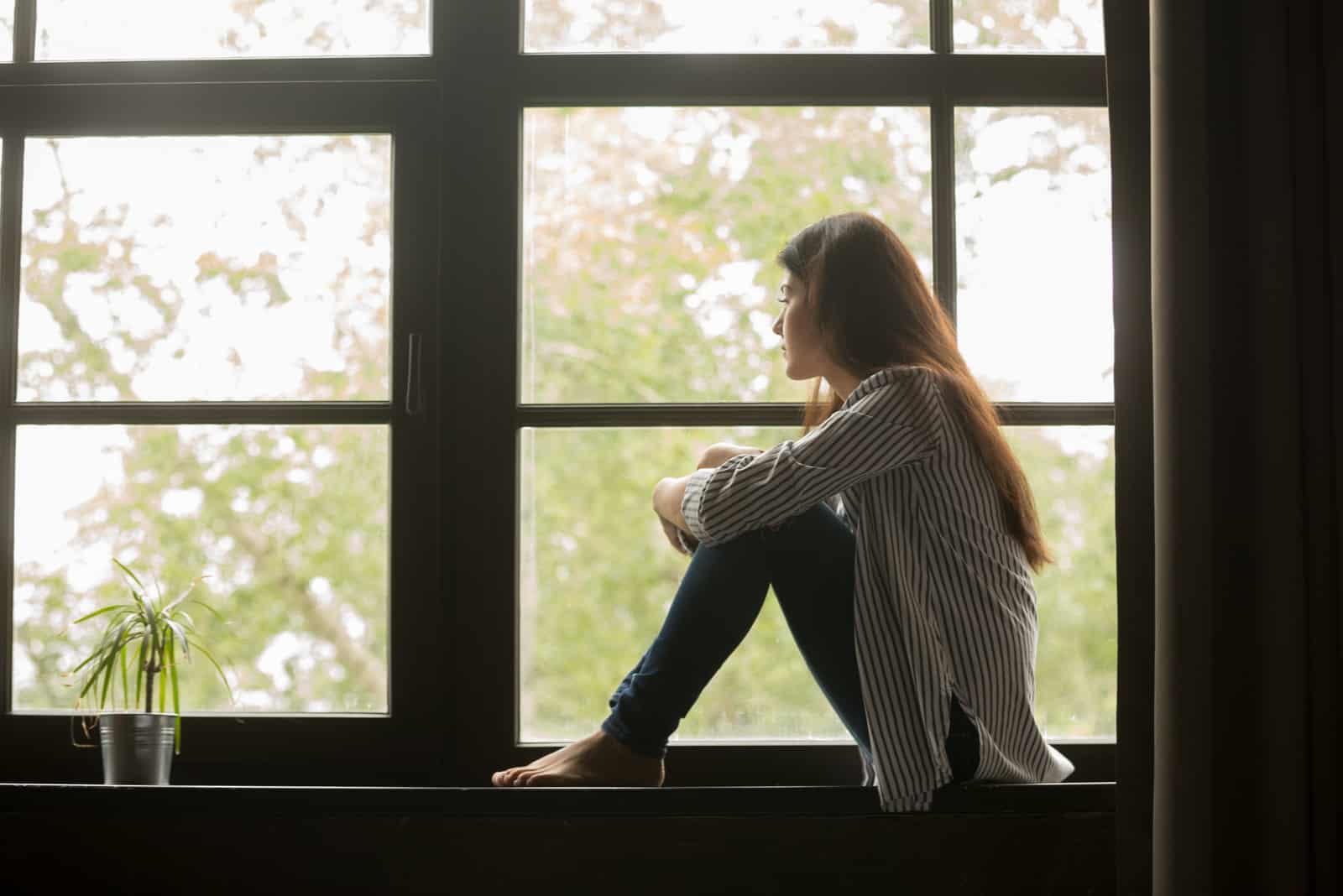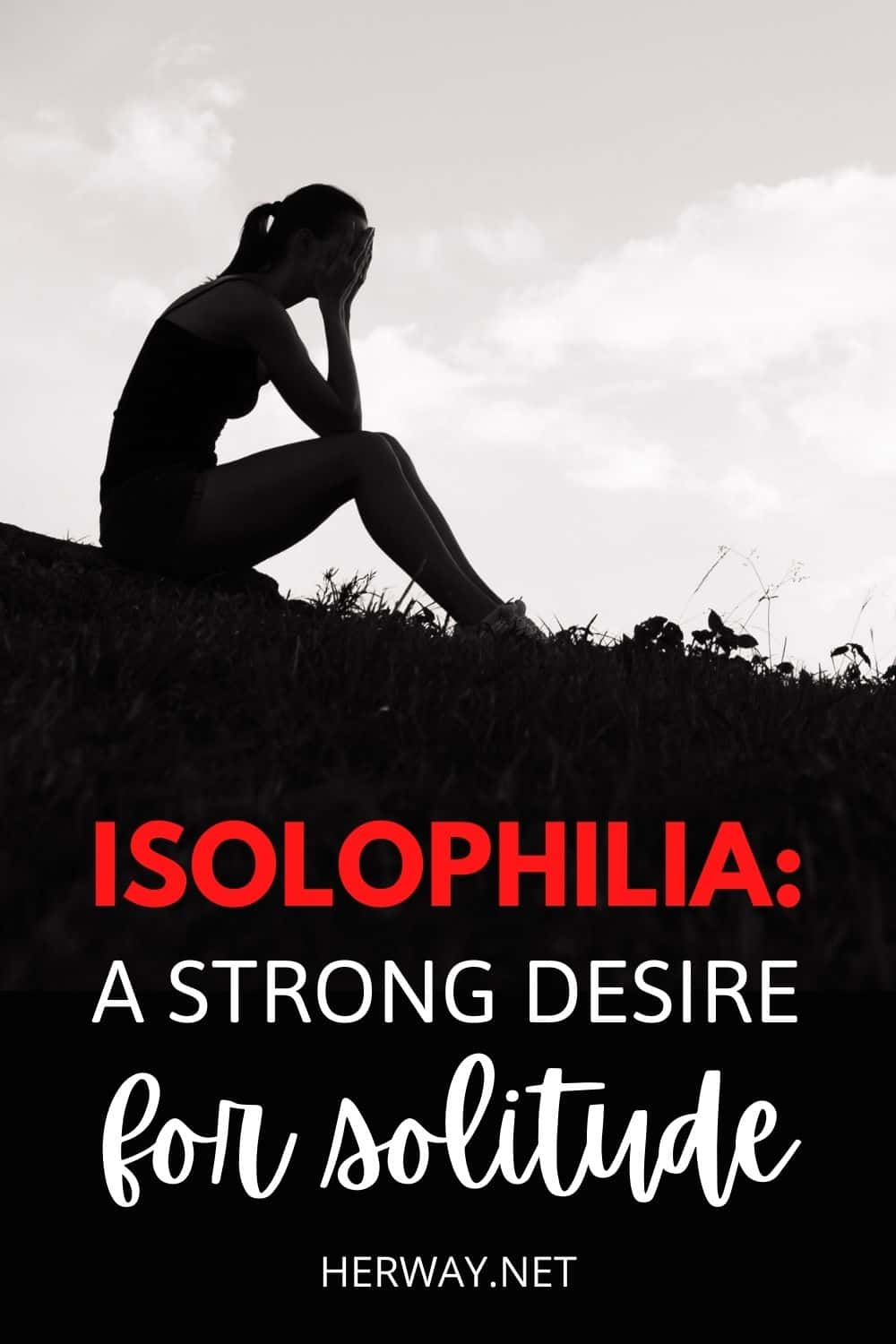Aislafilia: Una fuerte preferencia por la soledad
¿Tiene una preferencia clara por tiempo a solas? ¿Las interacciones sociales le agotan la mayor parte del tiempo y no le aportan realmente una sensación de plenitud?
If yes, I wish you a warm welcome to the club known as Isolophilia – having a strong preference for solitude.
Here’s the thing. Some of us prefer spending time with others, and some of us prefer our own company. No one is wrong or right – just different. (Me llevó un tiempo asimilar realmente esta hipótesis).
Right now, I’m truly enjoying spending time with my laptop, so I’ll use this opportunity to go into the depths of isolophilia, its connection with introversióny mucho más.
I hope you’ll enjoy my virtual company. ?
¿Qué significa isolofilia?

Isolophilia es una hermosa palabra inglesa formada por dos términos distintos: isolo (aislamiento, soledad) y philia (amor, inclinación).
Por lo tanto, el término Isolofilia significa tener una profunda necesidad y una marcada preferencia para la soledad. Y no, esto no es algo negativo.
And no, I’m not saying (read: typing) this just because I myself have felt the same way for some time now. We’re all wired differently, and that’s the beauty of the world we live in.
Isolophilia shouldn’t be treated as something that needs fixing, and you’ll find all the reasons why below.
Aislafilia e introversión

How is isolophilia linked to introversion? It’s universally acknowledged that introverts have a strong affection for solitude. As an introvert, I can confirm this statement.
After some time spent in a group of people, my “social battery” empties, and I feel the urgent need to recharge myself in solitude. Se siente como si alguien estuviera literalmente drenando tu energía durante los hábitos sociales.
Psychology Today explica este fenómeno de la siguiente manera:
“Having a less active dopamine reward system also means that introverts may find certain levels of stimulation — like noise and activity — to be punishing and tiring. This explains why the introvert in our bar example had fun for a little while but felt drained as he became overstimulated.”
Por lo tanto, una vez que una persona introvertida se sobreestimula, ya no le gusta socializar.. Instead, they start seeking solitude to “recover.”
POPULAR MEME: “When you find out your normal daily lifestyle is called ‘quarantine.’” ?

When I stumbled upon this popular meme, I couldn’t help but burst out laughing because of the truthfulness of the statement. (“It’s funny because it’s true.”)
So, people who have isolophilia seldom have the fear of missing out because they don’t really enjoy overcrowded, overly stimulating environments, and hanging out in large groups of people.
Lo disfrutan durante algún tiempo y hasta cierto punto. A veces, a sus allegados les cuesta entenderlo, así que empiezan a presionarlos para que salgan más.
Como siempre, la presión crea la contraacción (también hablo por experiencia).
I feel like it’s my holy duty to emphasize that isolophilia is not something that should be healed or treated. We could say it’s a lifestyle just like any other.
Aislafilia en el mundo moderno

Redes sociales, memes, sitios de citas, Snapchat, lo que se te ocurra. Esto me hizo pensar:
Is it even possible to be a legit “isolophilist” when spending time alone usually means spending time in the virtual world?
Pero en realidad tiene sentido. El mundo virtual evita la soledad y proporciona una alternativa segura para mantener conexiones con los demás.
Sin embargo, me atrevo a decir que el mundo virtual (especialmente redes sociales) también puede ser sobreestimulante para nosotros, los introvertidos/isolófilos.
También puede tener un efecto negativo en nuestra salud mental, porque a veces puede crear miedo a perderse algo en lugar de ser motivador.
It’s when you see your close friends clubbing and having fun while you’re watching TV shows at home, you start thinking that maybe you’re missing out on all the fun.
But here’s a plot twist.
Chances are your friends who are clubbing feel the same way. Some of them regret not staying home. Here’s the potential conclusion:
If you enjoy where you are with all your heart, then you’re not missing out on anything.
You’re welcome!
Aislafilia frente a autofobia

While isolophilia means having a strong preference for solitude, autophobia is completely the opposite – the antonym of isolophilia.
La autofobia, o su sinónimo monofobia, es el miedo a estar solo. It’s when even the idea of spending time alone makes you feel uneasy and causes stress and ansiedad.
You would be surprised how many people have a fear of being alone. With that said, here’s one statement that’s been ringing in my ears ever since:
La verdad es que nunca hemos estado más conectados entre nosotros y, sin embargo, nunca nos hemos sentido más solos.
For that, I blame our hectic lifestyles and social media. Basically, when we’re not busy doing something, we even bring our smartphones to the toilets. We’ve created this virtual need to constantly be connected with others and the rest of the world.
PARA REFLEXIONAR: Pero, ¿esto nos hace sentirnos más solos y al mismo tiempo nos crea miedo a estar solos?
El tiempo a solas es igual de importante para todos

The importance of spending time alone shouldn’t be neglected regardless of whether you belong to the category of isolophilia individuals or not because it is a form of autocuidado.
If you have isolophilia, you’ll spend more time alone than others. If you don’t have isolophilia and are not an introvert, this doesn’t mean you should never seek solitude.
Pasar tiempo a solas es crucial para nuestra crecimientodesarrollo personal y autorreflexión.
This helps you detach from other people’s opinions, needs, and interests. It helps you dejarlo todo. Piense en ello como una puesta al día o una evaluación periódica de sus progresos y de todo lo que ha sucedido.
Además, la soledad nos ayuda a filtrar y deshacernos de cualquier toxicidad que hayamos acumulado mientras pasamos tiempo con personas negativas.
Alone time is not something we should fear or judge. It’s completely natural and desirable.
After all, if you don’t enjoy your own company, how can you enjoy the company of others? Or how can others enjoy your own company?
Todo está interconectado, y todo surge de la relación que tenemos con nosotros mismos.
Más ideas para reflexionar
In the world of fake ideals and all kinds of manipulation, isolophilia shouldn’t be treated as a condition but a necessity. Sometimes, the only way to find answers and conquer fears is to dig deep within yourself.
Estas son las preguntas que debemos hacernos (en soledad):
¿Estás en paz contigo mismo o necesitas el ruido para distraerte de tus propios demonios? ¿Puede estar solo sin sentirse solo ?
Can you respect other people’s need for solitude if you don’t have one?








